11 Dec2015
By Kristin McCabe and Zachary VanHouten
On December 10, President Obama signed into law the latest reauthorization of the Elementary and Secondary Education Act—now titled the Every Student Succeeds Act (ESSA).
The long-overdue reauthorization is being heralded as the end of the heavy-handed No Child Left Behind era, returning much of the authority to states and local agencies to oversee PK-12 education. But like any law of such great scope, this one has plenty of contentious content, and education organizations are offering decidedly mixed reviews.
In its statement on the passage of ESSA, the Coalition for Teaching Quality (of which AACTE is a founding member) said, “While the Coalition appreciates ESSA’s efforts to strengthen the capacity of states and districts to improve teacher quality, the bill unfortunately reflects a significant step back for many of our nation’s neediest students by eliminating a meaningful minimum entry standard for teachers and the need for states and districts to correct ongoing inequities in access to high-quality teachers.”
01 Dec2015
By Hannah Maes and Kristin McCabe
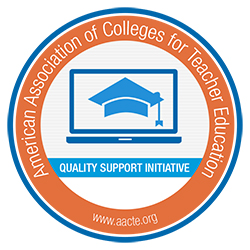
Did you know that AACTE’s six Online Professional Seminars (OPSs) can be taken in any order? In fact, the seminars have no prerequisites, meaning you can skip what you already know and jump right in to the professional learning you need most.
Or are you looking for a well-rounded understanding of assessment and accreditation issues for educator development, program improvement, and quality assurance systems? Then start from the beginning and run through the complete sequence of courses.
Offered through AACTE’s Quality Support Initiative, the seminars are scheduled to be not only flexible but also convenient. Each course is completed asynchronously over a 3- to 4-week period, and multiple session options let you work around your schedule. We’ll be starting several course sections this month, including some that run over the holidays, if that suits your needs—see the current schedule of available dates.
27 Oct2015
By Guneev Sharma and Kristin McCabe
A new study out of the National Center for Education Statistics (NCES) helps debunk the oft-repeated assumption that half of new teachers leave the profession in the first 5 years. Overall, some 77% of participants in the Beginning Teacher Longitudinal Study continued teaching for 5 straight years, and the rate was even higher (80%) for those who had a mentor or participated in an induction program—just two of the many influences on teachers’ career paths studied for the report.
Career Paths of Beginning Public School Teachers first scrutinizes both broad and detailed career paths of 155,600 teachers who began their classroom career in the 2007-08 academic year. Then it looks at a subset of 1,440 teachers’ characteristics in their first and in their final year of teaching, covering personal demographics, student and school factors, and professional preparation and in-school supports.
27 Oct2015
By Kristin McCabe
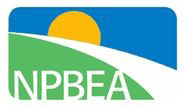
Last week, the National Policy Board for Educational Administration (NPBEA) voted unanimously to approve revised standards for education leaders. The 2015 Professional Standards for Educational Leaders, formerly known as the Interstate School Leaders Licensure Consortium (ISLLC) standards, are currently available in summary form and will be published officially next month.
The Council of Chief State School Officers (CCSSO), which owns the standards’ copyright, worked closely with other members of NPBEA to refresh the ISLLC standards, which were first published in 1996 and last updated in 2008. The revision was supported by a grant from the Wallace Foundation and informed by multiple public comment periods and focus groups, culminating in an NPBEA working group charged with finalizing the standards based on feedback from more than 1,000 principals, superintendents, and others in the field.
20 Oct2015
By Hannah Maes and Kristin McCabe
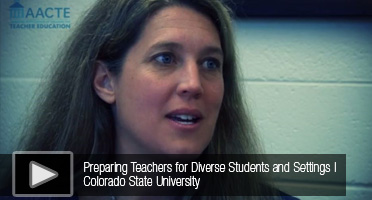
A new video in AACTE’s Research-to-Practice Spotlight Series shows education leaders from Fort Collins High School and Colorado State University discussing their work to prepare teacher candidates for special education situations and other diverse student needs. From understanding IEPs to tapping school-based counseling resources to differentiating instruction in both mainstreamed and self-contained classrooms, the program strives to expose candidates to a wide variety of students and settings, say Josh Richey, dean of students at the high school, and Wendy Fothergill and Juliana Searle, program advisers.
Today’s classrooms are more diverse than ever, and educator preparation programs such as those at Colorado State University (CSU) strive to give prospective teachers experiences across varied communities, in different school models, and with a broad range of students, including those with Individualized Education Programs (IEPs) for special education.
25 Sep2015
By Kristin McCabe
Teacher educators and teacher candidates have new resources in two high-level summaries of the research on learning. By distilling and organizing the existing research on cognitive science and educational psychology, the reports offer teacher candidates concise summaries of high-impact practices grounded in scientific evidence and professional consensus around PK-12 learning. Teacher preparation programs might find them valuable as resources to tie together learning science concepts that are integrated across multiple courses.
08 Sep2015
By Kristin McCabe
A new nonprofit think tank led by Linda Darling-Hammond launched last week, aiming to inform education-related policies by sponsoring high-quality research on timely topics and making the findings easy to access and interpret. This Learning Policy Institute will target PK-12 policies at the federal, state, and local level and will both examine existing studies and conduct or sponsor new research to meet pressing needs for student learning.
In her Huffington Post article announcing the initiative, Darling-Hammond pledges to prioritize whatever works best for students over any partisan agenda. “We will follow the evidence wherever it leads, and will work with those of any political affiliation or point of view who share that commitment,” she writes.
04 Sep2015
By Kristin McCabe
Get ready to connect with your communities this month around the U.S. Department of Education’s 2015 “Ready for Success” bus tour, making stops in 10 cities September 14-18.
U.S. Education Secretary Arne Duncan and other senior officials will hold events in schools, universities, and other education settings to celebrate efforts to improve educational access and opportunity. Each “bus stop” will spotlight a different topic, ranging from college access and affordability to teacher leadership, disability resources, and technology.
25 Aug2015
By Kristin McCabe
In a new series of short videos, superintendents of six large, urban school districts around the country share lessons for improving development of leaders for their districts’ schools. AACTE members working to prepare leaders for schools and districts may find the videos to be a useful resource for their candidates.
The series features the superintendents in Charlotte-Mecklenburg (NC), Denver (CO), Gwinnett County (GA), Hillsborough County (FL), New York (NY), and Prince George’s County (MD), which have been participating in the Wallace Foundation’s Principal Pipeline Initiative for several years. (AACTE is a communications partner for the initiative and, along with its members, is devoting new attention to principal preparation, beginning with a survey this fall.)
17 Aug2015
By Kristin McCabe
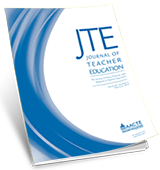 Addressing the special theme of “School-Based Learning,” the September/October 2015 issue of the Journal of Teacher Education (JTE) is now available online. See what Volume 66 Number 4 has to offer!
Addressing the special theme of “School-Based Learning,” the September/October 2015 issue of the Journal of Teacher Education (JTE) is now available online. See what Volume 66 Number 4 has to offer!
07 Aug2015
By Kristin McCabe
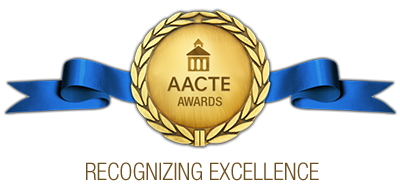 Time is running out to apply for AACTE’s 2016 Outstanding Dissertation Award! Entries must be made online by Monday, August 17. Help AACTE showcase outstanding doctoral research at your institution by encouraging your top recent graduates (or recent hires!) to apply for this prestigious award, which includes a $1,000 cash prize.
Time is running out to apply for AACTE’s 2016 Outstanding Dissertation Award! Entries must be made online by Monday, August 17. Help AACTE showcase outstanding doctoral research at your institution by encouraging your top recent graduates (or recent hires!) to apply for this prestigious award, which includes a $1,000 cash prize.
30 Jun2015
By Kristin McCabe and Omar Davis

A new ethics framework from the National Association of State Directors of Teacher Education and Certification (NASDTEC) aims to guide PK-12 educators in their decision making—and assist their preparation programs in nurturing their ability to make ethical decisions. NASDTEC unveiled the Model Code of Ethics for Educators at a press conference June 25 in Washington, DC.
The code was developed over the past year in a joint effort with Educational Testing Service, the University of Phoenix, and the National Association of State Teachers of the Year. Once the draft was ready, a public comment period last winter provided feedback before the language was finalized. NASDTEC considers the result to be a fluid document that will continue to adjust to conditions in the field. Its board even created a new National Council for the Advancement of Educator Ethics to oversee modifications to the framework on an ongoing basis, and comments are still welcome on the document.
29 Jun2015
By Kristin McCabe
The model standards of the Interstate School Leaders Licensure Consortium (ISLLC), developed in 1996 by the Council of Chief State School Officers (CCSSO) and last revised in 2008, generated controversy in the field during their most recent revision effort last fall and this spring. The National Policy Board for Education Administration (NPBEA), which convenes an array of stakeholder groups, is partnering with CCSSO to consider the feedback received from the field and make final adjustments to the new standards, now planned for release this fall.
NPBEA was among the groups that approved the original standards nearly 20 years ago and has been involved to some degree in subsequent revisions. Its constituent organizations* all have close connections to the work addressed in the standards, but some of these constituents felt their voices were not heard in the recent standards update.
23 Jun2015
By Kristin McCabe
A new partnership between the Woodrow Wilson Foundation and the Massachusetts Institute of Technology (MIT) launched last week to “transform policy and practice” in educator preparation. Announced June 16, the new Woodrow Wilson Academy of Teaching and Learning will be a graduate school of education based at MIT that conducts research and offers competency-based master’s programs in teaching and school leadership.
Foundation President Arthur Levine, former president of Teachers College at Columbia University (NY), touted the academy’s plan to “throw out the clock”—focusing on its students’ mastery of competencies rather than on credit hours—and to produce open-source course modules for ease of replication nationwide.
23 Jun2015
By Kristin McCabe
The U.S. Department of Education invites applications for Skills for Success grants to support local education agencies and their partners, including colleges and universities, in developing the noncognitive skills of middle-grades students.
According to the Department’s web site, up to $2 million is available to fund “the implementation, evaluation, and refinement of existing tools and approaches (e.g., digital games, growth mindset classroom activities, experiential learning opportunities) that integrate the development of students’ noncognitive skills into classroom-level activities and existing strategies designed to improve schools.”









 Addressing the special theme of “School-Based Learning,” the September/October 2015 issue of the Journal of Teacher Education (JTE) is now available online. See what
Addressing the special theme of “School-Based Learning,” the September/October 2015 issue of the Journal of Teacher Education (JTE) is now available online. See what  Time is running out to apply for AACTE’s 2016 Outstanding Dissertation Award! Entries must be made online by Monday, August 17. Help AACTE showcase outstanding doctoral research at your institution by encouraging your top recent graduates (or recent hires!) to apply for this prestigious award, which includes a $1,000 cash prize.
Time is running out to apply for AACTE’s 2016 Outstanding Dissertation Award! Entries must be made online by Monday, August 17. Help AACTE showcase outstanding doctoral research at your institution by encouraging your top recent graduates (or recent hires!) to apply for this prestigious award, which includes a $1,000 cash prize.